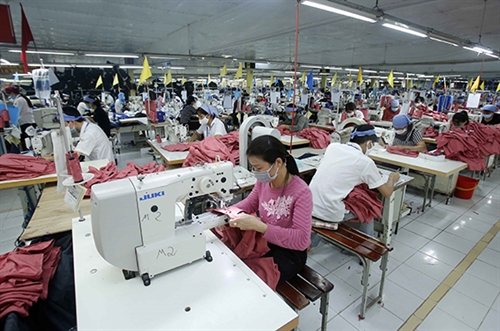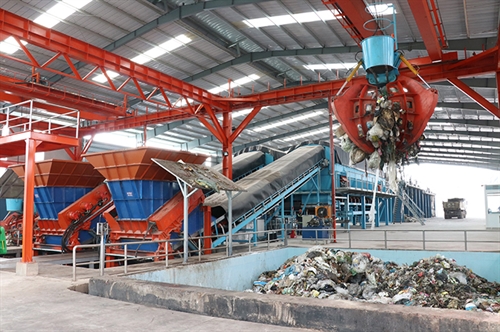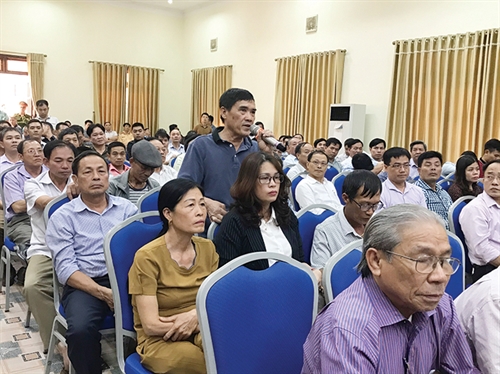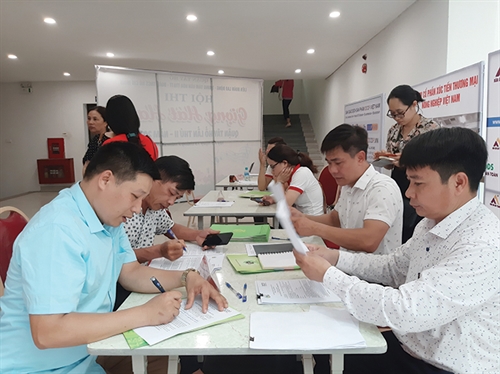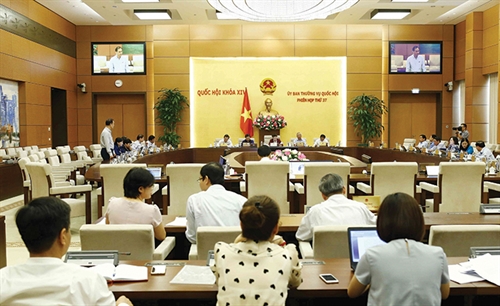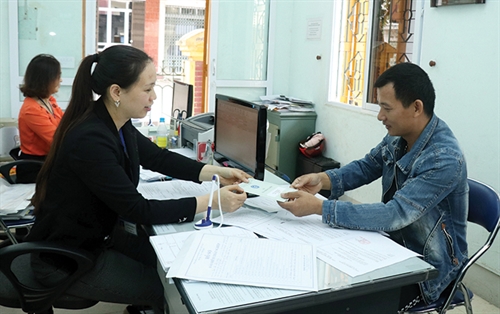Thang Nam Do[1]
Having contained the COVID-19 pandemic, Vietnam is becoming the first developing country to adopt carbon pricing in the post-pandemic period to help guide a cleaner recovery.
On November 17, Vietnam’s National Assembly passed the revised Law on Environmental Protection legalizing an emission trading scheme. The law will take effect on January 1, 2022.
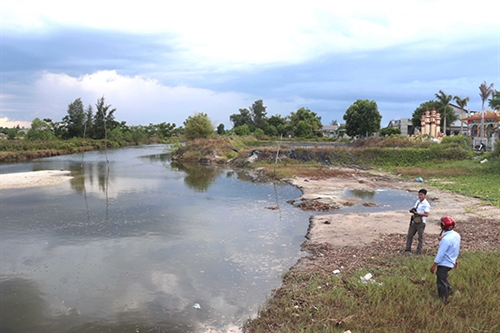 |
| A section of Bau Bom river dike in Quang Tri province was swept away by flood several years ago__Photo: VNA |
This policy is expected to strengthen Vietnam’s commitment to greenhouse gas emission reduction under the Paris Agreement on climate change. It paves the way for the country to further tap its significant renewable energy potential, and switch to a low-carbon development model in the post-COVID-19 recovery era.
The law stipulates that the Government will establish a carbon emission trading scheme that suits the local context and complies with international climate change treaties. Details such as targets, timelines and regulated industries will be specified later in a government decree.
The law also legalizes enabling policies such as national greenhouse gas emission inventories, and the monitoring, reporting and verification of emissions.
By adopting carbon pricing, Vietnam will strengthen its position to reap additional benefits from free trade with the European Union. Carbon pricing has the potential to improve Vietnam’s image internationally. It will also contribute to ongoing social harmony by reducing climate change impacts and environmental pressures.
Vietnam is highly vulnerable to climate change. Extreme weather events are intensifying and becoming more frequent. Rising sea levels risk inundating important economic zones in coastal areas, potentially displacing millions of Vietnamese people.
Vietnam was the second-most air polluted country in Southeast Asia in 2019 behind Indonesia, with around 60,000 deaths related to air pollution in 2017. Exceeding the World Health Organization guideline on outdoor air pollution reduces life expectancy in Vietnam by about one year and costs the country about 5 percent of GDP.
But Vietnam’s greenhouse gas emissions have been increasing quickly. The average annual growth rate in Vietnam’s CO2 emissions from fuel combustion over 2009-2019 was about 11 percent, the fastest in Southeast Asia. In 2019, Vietnam was the 22nd largest CO2 emitter from fuel combustion in the world and the third largest in Southeast Asia behind Indonesia and Thailand.
Carbon pricing is a policy instrument that places a cost on greenhouse gases. With a carbon pricing in place, a market-based economy will have an incentive to steer itself in a low-emission direction.
By mid-2020, 61 carbon pricing initiatives had been implemented or scheduled for implementation worldwide. Before Vietnam, a handful of developing countries had adopted carbon pricing, including China, South Africa and Kazakhstan.
Vietnam’s adoption of carbon pricing will hopefully encourage other countries to commit to reducing greenhouse gases. The post-COVID-19 period is an ideal time to adopt a carbon pricing, setting foundations for a green recovery. Recent net-zero emission commitments by big emitters such as China, Japan and South Korea - and US planning to re-join the Paris Agreement - create momentum for long overdue strengthened global mitigation efforts.-
This article originally appeared in eastasiaforum.org
